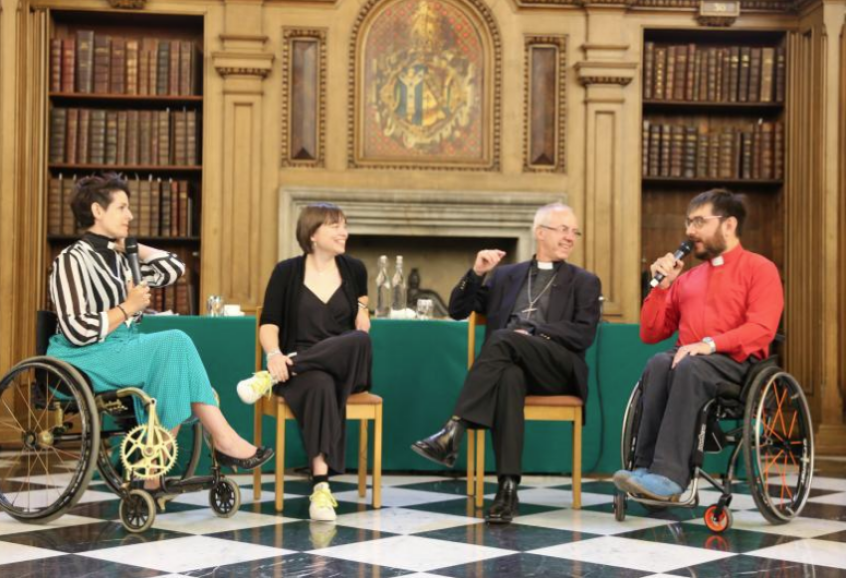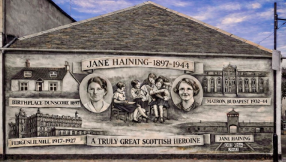I'm a disabled woman in itinerant ministry.
I'm told that I should find any one of those hard, but having the three is just plain greedy. I can honestly say I find the disability part is hardest.
There are wildly varying views in the different expressions of church throughout the UK when it comes to disability. I'm happy to report that there are some churches that are accessible, welcoming and just plain lovely, but they are in the minority.

Some say I shouldn't be in ministry because my disability dishonours God. Others just want to 'fix' me either by prayer or random suggestions such as 'Are you harbouring an unforgiving spirit?' At the other end of the scale there are churches who ask 'What is the minimum we can do to comply with the Equalities Act.?
Even without being a woman and in ministry, life is hard for disabled Christians –all over the world.
This is why I was so excited to hear that the Archbishop of Canterbury was hosting a cutting edge disability conference at Lambeth Palace on July13 called 'A Place to Belong'.
Having followed the tweets from the conference, I know there was much discussed – the good, the bad and the pretty darned ugly of how the church often treats those who have disabilities. There were inspirational stories and depressing statistics side by side. Even more stories came out on the #CofeBelong Twitter stream. It's worth a look.
The majority of the invited participants had a lived experience of disability, and the diversity of disability appeared to be well represented too. Others were experts in the field of disability inclusion who added to the voice of those seeking change in the Church of England.
The heart for change was alive and well, but for change to happen this heart also needs to be alive and well in those who were not at the conference. We need change where the rubber hits the road, and I'm worried that the outcomes of this will only reach the already convinced and not the people who really need to hear it.
But how can that be done? The reports on the conference point to some resources by Livability, that I know will be excellent. But we've been here before with other excellent resources.
A brief look at the statistics and a glance at our churches offers a snapshot of the situation. One in 20 people have a disability – an exceedingly low estimate. Is this reflected in our churches? Is it reflected in those ministering in our churches? It's difficult to give a clear answer because many people have hidden disabilities, but my experience shows me it isn't. There is a hidden church out there of Christians with disabilities who feel they cannot 'go' to church.
Churches love their policies. But when they think about disability, It's often found in the health and safety section. In reality, inclusion should be a thread that runs through every policy and more importantly, every vision statement – children, evangelism, ministry and discipleship, to name just a few. Having a champion in each church to make this happen and take inclusion from basic access to true belonging is a very good start.
It's often the case that many churches – though not all – think inclusion begins and ends with a ramp. Most will provide for those of us with wheels, but even then some do it badly. In their minds, they've already ticked the discrimination box.
Disability is diverse, in both the range of disabilities and the type of support needed. There may be practical inclusion adjustments in a church, but the attitude is poor. This is why many in the disability community use the term 'belonging'. It's much more than inclusion. To quote John Swinton, who was at the conference, 'Belonging is being missed when you're not there.' Or in my own words, it's being missed for who you are, not a sigh of relief because the disabled person hasn't turned up.
I really hope that much good comes from the 'Place to Belong' conference. I hope it overflows into every other denomination and stands as an example to the communities in which we live.
It would be so nice if church was a welcome relief from the battle disabled people face daily – but sadly, at the moment, it often isn't.
Kay Morgan-Gurr is chair of Children Matter and co-founder of the Additional Needs Alliance. Follow her on Twitter @KayMorgan_Gurr













